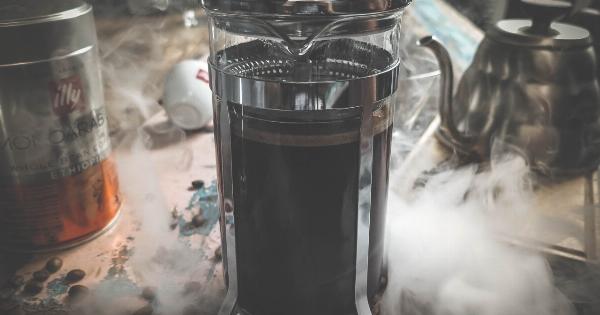Caffeine is the world’s most widely consumed psychoactive substance, found in beverages like coffee, tea, and energy drinks. Its stimulating effects can help people stay awake and increase alertness.
However, excessive consumption of caffeine can lead to a condition known as caffeine intoxication, which is essentially a form of poisoning. In this article, we will explore the symptoms of caffeine intoxication, its potential health risks, and strategies for preventing and treating this dangerous condition.
The Symptoms of Caffeine Intoxication
Caffeine intoxication is characterized by the following symptoms:.
- Restlessness and nervousness
- Excitement and agitation
- Increased heart rate
- Insomnia
- Diuresis (increased urination)
- Gastrointestinal disturbances
- Muscle twitching
- Rambling flow of thought and speech
- Flushed face
- Periods of inexhaustibility
These symptoms may vary in intensity depending on the dose of caffeine consumed and an individual’s sensitivity to the substance.
Health Risks Associated with Caffeine Intoxication
Caffeine intoxication may seem harmless to some, as caffeine is widely consumed without ill effects. However, it is important to recognize that excessive consumption can lead to serious health risks.
Long-term abuse of caffeine can result in the following complications:.
- Increase in blood pressure: Caffeine stimulates the cardiovascular system, leading to a temporary increase in blood pressure. Prolonged high blood pressure can put strain on the heart and increase the risk of heart disease.
- Cardiac arrhythmias: Excessive caffeine intake can disrupt the normal rhythm of the heart, leading to irregular heartbeats.
- Dehydration: Caffeine is a diuretic, meaning it stimulates increased urine production. This can contribute to dehydration if individuals do not balance their caffeine intake with adequate hydration.
- Sleep disturbances: Consuming caffeine close to bedtime can interfere with sleep patterns and lead to insomnia. Lack of quality sleep has numerous negative effects on overall health.
- Anxiety and panic attacks: Caffeine is a stimulant that can exacerbate feelings of anxiety and trigger panic attacks, especially in individuals with pre-existing anxiety disorders.
- Dependency and withdrawal: Regularly consuming high doses of caffeine can lead to dependency, resulting in withdrawal symptoms such as headaches, irritability, and fatigue when attempting to reduce or quit caffeine consumption.
- Impaired nutrient absorption: Excessive caffeine intake can interfere with the absorption of certain nutrients, such as calcium and iron, potentially leading to deficiencies.
It is crucial to be aware of these risks and to consume caffeine in moderation to avoid the negative consequences associated with caffeine intoxication.
Preventing and Treating Caffeine Intoxication
Preventing caffeine intoxication can be achieved by following these guidelines:.
- Monitor consumption: Keep track of your daily caffeine intake, including all sources, and ensure it remains within safe limits. The FDA recommends a maximum daily intake of 400mg for healthy adults, which is roughly equivalent to four cups of coffee.
- Be aware of caffeine content: Read product labels carefully to understand the caffeine content of beverages and food items. Different brands and preparations can have varying levels of caffeine.
- Avoid excessive intake: Resist the temptation to consume large amounts of caffeine to counter sleep deprivation or fatigue. Proper rest and prioritizing your health should be the primary focus.
- Gradually reduce consumption: If you suspect you may be consuming too much caffeine, consider gradually reducing your intake to minimize withdrawal symptoms.
- Stay hydrated: Balance your caffeine consumption with an adequate intake of water to avoid dehydration.
- Seek professional help if needed: If you find it difficult to control your caffeine consumption or experience severe withdrawal symptoms, consult a healthcare professional who can offer guidance and support.
If you or someone you know is experiencing severe caffeine intoxication symptoms, it is essential to seek immediate medical attention.
Health professionals can provide the appropriate treatments and interventions to mitigate the effects of caffeine poisoning.
Conclusion
Caffeine intoxication is a serious condition that can have detrimental effects on physical and mental health. While caffeine is generally safe and consumed by millions daily, excessive intake can lead to poisoning and various complications.
By recognizing the symptoms of caffeine intoxication, understanding the associated health risks, and practicing moderation, individuals can protect themselves from the dangers of caffeine poisoning. Educating oneself and promoting responsible caffeine consumption is crucial for maintaining a healthy and balanced lifestyle.






























